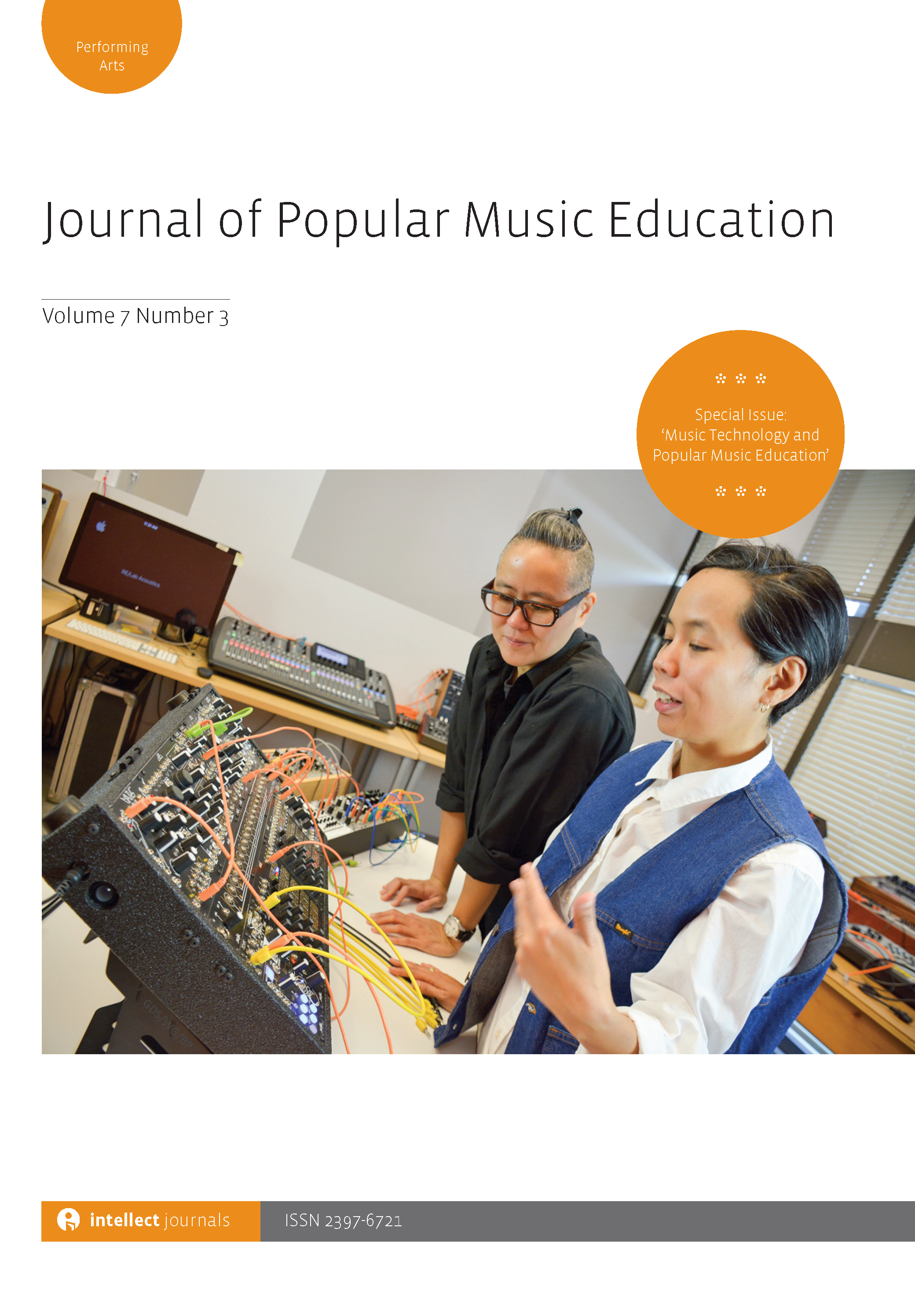-
oa Riot grrrls and shredder bros: Punk ethics, social justice and (un)popular popular music at School of Rock
- Source: Journal of Popular Music Education, Volume 5, Issue 3, Nov 2021, p. 375 - 395
-
- 20 Oct 2020
- 12 Jun 2021
- 01 Nov 2021
Abstract
This article presents a case study of riot grrrl music in a School of Rock franchise in the Midwestern United States. It presents the school as a place in which gender is bound up in specific notions of what it is to play rock music, notions that directly inform what constitutes popular popular music within this context. The article examines the Riot Grrrl project using frame analysis, presenting and discussing three frames through which riot grrrl was taught: as music, punk ethics and social justice. It examines a case of frame conflict as played out in a disagreement between the programme’s two male instructors. It suggests that multi-frame approaches to popular music teaching, including clashes that may arise from conflicting frames, are effective in disrupting the musical-cultural status quo and in creating spaces in which students may productively and empathetically encounter the unpopular popular music of marginalized musical ‘Others’.
Funding
- European Union’s Horizon 2020 research and innovation programme under the Marie Skłodowska-Curie (Award 844238)



